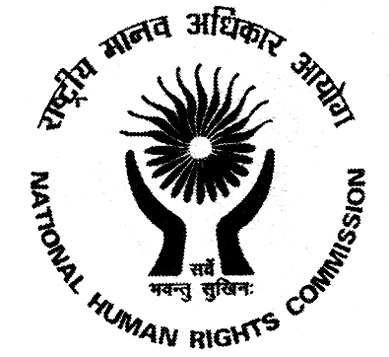A conference of the National Human Rights Commission (NHRC) and State Human Rights Commissions (SHRCs) to discuss the ways and means to make them stronger and effective for the promotion and protection of human rights will be held here on Friday (18 September 2015). The event will be inaugurated by union Home Minister Rajanth Singh, an official press release said. NHRC chairperson Justice Cyriac Joseph will deliver the presidential address. It is noteworthy that there is no regular Chairperson of NHRC at present, and Justice Cyriac Joseph is presently its acting chairperson.
 The objective of the conference, which is being organised by the NHRC, is to discuss the ways and means to make the NHRC and the SHRCs stronger and effective for the promotion and protection of human rights. At present, there are 25 States in the country so far which have set up SHRCs, autonomous bodies independent of the NHRC. The NHRC has proposed to the Government of India for an amendment in the Protection of Human Rights (PHR) Act, 1993 for constitution of Human Rights Commissions in the Union Territories.
The objective of the conference, which is being organised by the NHRC, is to discuss the ways and means to make the NHRC and the SHRCs stronger and effective for the promotion and protection of human rights. At present, there are 25 States in the country so far which have set up SHRCs, autonomous bodies independent of the NHRC. The NHRC has proposed to the Government of India for an amendment in the Protection of Human Rights (PHR) Act, 1993 for constitution of Human Rights Commissions in the Union Territories.
The Conference will also deliberate upon the possibility of suggesting amendments to the Protection of Human Rights Act to give more powers to the NHRC and the SHRCs. Further, the scope of Section 12 (a) and (j) of PHR Act in dealing with the violation of Human Rights by entities other than public servants will also be discussed.
The NHRC, headed by earlier Chairperson, Mr. Justice K.G. Balakrishnan, had earlier sent recommendations to the Ministry of Home Affairs seeking amendments in the Section 30 of the PHR Act, 1993, in order to specify the “Jurisdiction and mandate of Human Rights Courts” by identifying the offences which could be tried by them under a procedure for the same.
The relevant provisions of the Protection of Human Rights Act, 1993, amendments to which are sought to be discussed in this conference, are as under:
“12. Functions of the Commission.—The Commission shall perform all or any of the following functions, namely:—
(a) inquire, suo motu or on a petition presented to it by a victim or any person on his behalf, or on a direction or order of any court] into complaint of—
(i) violation of human rights or abetment thereof; or
(ii) negligence in the prevention of such violation,
by a public servant;
*** ***
(j) such other functions as it may consider necessary for the promotion of human rights.”
“30. Human Rights Courts.—For the purpose of providing for speedy trial of offences arising out of violation of human rights, the State Government may, with the concurrence of the Chief Justice of the High Court, by notification, specify for each district a Court of Session to be a Human Rights Court to try the said offences:
Provided that nothing in this section shall apply if—
(a) a Court of Session is already specified as a special court; or
(b) a special court is already constituted,
for such offences under any other law for the time being in force.”
The experience has shown that the human rights bodies have been ineffective in dealing with the cases of human rights violations, in spite of the fact that only a former Chief Justice of India could be appointed as the chairperson of the NHRC.

